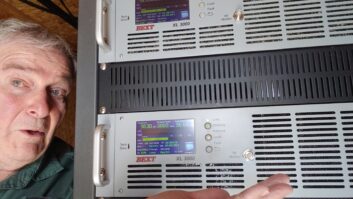A recent decision by the Media Bureau of the Federal Communications Commission provides a good reminder of the commission�s lack of tolerance for violations of the rules, even when the violator says �Mother May I?�
This reminder comes to us from upstate New York, where two commonly-owned entities sought to swap stations with a third licensee. The transactions would have been permissible, except for the intention of the parties to execute a time brokerage agreement to permit the parties to effectively commence operating as if the swap had occurred upon the submission of the assignment applications with the commission.

Executing a TBA simultaneously with an asset purchase agreement is a common practice and is usually noncontroversial. From a business perspective, the buyer has a goal to protect its interest in the station(s) to be acquired, and the seller still maintains ultimate control of the station(s), which the commission requires, and the seller can recommence the day-to-day operations, should the commission refuse to grant the assignment application or if the buyer doesn�t show up at closing.
If the agreement contemplates that the broker will control 100 percent of the airtime of the station, though, the commission will attribute the ownership of the station to buyer upon the commencement of the agreement. And that is where the licensees in New York ran into problems. The broker/buyer already had an attributable interest in the maximum number of radio stations in the radio market, and the commencement of the TBA caused the broker/buyer to exceed the maximum number of stations under common control.
Recognizing this conundrum, the assignment applications filed with the commission contained a temporary waiver request, asking for authority to implement the combined control of the stations. The buyer noted that the commission had granted waivers in connection with other transactions, and that the need for the waiver will end when the commission grants the assignment applications and the parties consummate the transaction.

Throwing significant shade on the transaction, the commission denied the waiver request, and imposed a forfeiture of $20,000. The commission focused on the fact that, while the buyer filed a waiver request, the parties implemented the TBA without waiting for the commission to actually consider the waiver request, and the parties did not provide any justification for why it was necessary to implement the TBA without waiting for word from the FCC that the waiver request would granted.
As such, the commission found that the parties violated the multiple ownership rules, and reminded FCC licensees that �business expedience is not synonymous with the public interest.�
However, the commission did throw a lifeline to the parties. While the assignment applications were dismissed, it was done without prejudice, which means the parties could resubmit the applications and either wait for the commission to grant a waiver request for the TBA to be implemented during the processing of the applications, or the parties could just avoid the implementation of a TBA the second time around.
In any respect, the decision is a good reminder for anyone doing business with the commission to wait until it approves a request/application before moving forward.
BRIEF NOTE
Speaking of moving forward, the commission implemented a new electronic filing system for rulemaking proceedings on June 20.
For those of us who remember sitting at Sun microprocessor portals at the commission�s reference room at 1919 M Street to pull comments from the Record Image Processing System, this new system reflects a significant step forward. The new system permits full-text searches within documents, and developers can create applications through APIs.
DATELINE
July 10, 2016 � Issues/Program lists must be placed in stations� public inspection files.
Aug. 1, 2016 � Stations in California, Illinois, North Carolina, South Carolina and Wisconsin must place their Annual EEO Public File Reports in the station�s public inspection file.












